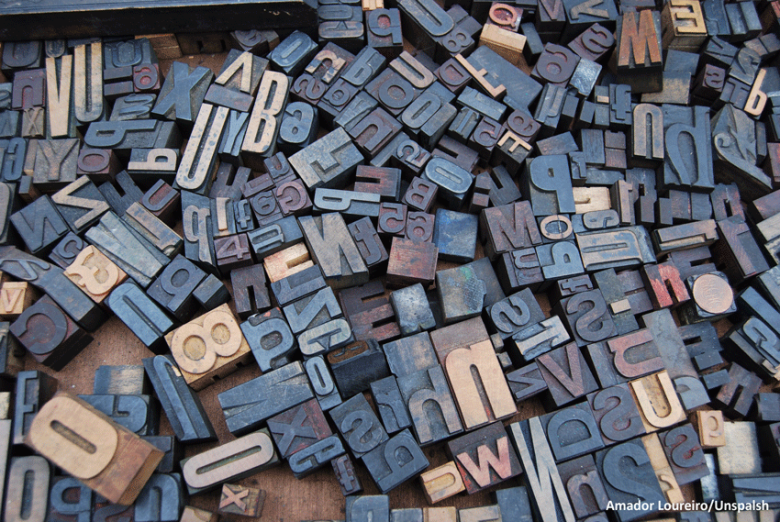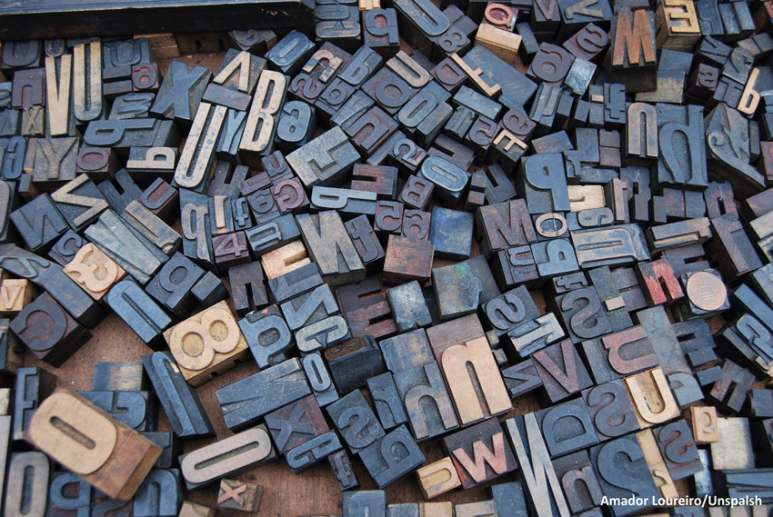By Anmol Irfan
“Assume your readers don’t know what you’re talking about.” “Explain further.” “Needs more context.” These are just some of the editorial comments I get regularly on my articles – especially when I’m writing about Pakistani culture or Islam and Muslim experiences. Looking at the comments themselves, there’s nothing wrong with asking this – after all, writing should make sense to the reader and the point of journalism is to shed light on issues that may otherwise remain misunderstood or simply not talked about. But as a bilingual Muslim Pakistani journalist that demand to explain becomes as much about me as it does about the reader.
Austrian based linguist Edie shares the connection between language and identity, which makes writing so much more than just the words that are being said.

“I absolutely think language and identity are closely connected. It also seems to be that I switch identities with the language I’m using at a certain point,” she tells MDI.
Reporting on anything related to Pakistan naturally comes with the need to use Urdu words, which often need to be translated. Sometimes finding the right translation, and yet also keeping it concise and making it readable, can be enough to make writing that one word more difficult than writing the rest of the article. Often words have no exact meaning in English and translating them can feel like translating a part of my identity beyond just the word.Zahra Sabri, a literary translator, academic and former journalist, points out that with some words she just doesn’t translate them.
“Even though journalism is easier than fiction when it comes to this [translation], if I ever come across a word that’s untranslatable, I make sure that I spell it correctly – not the anglicised way – and I leave it there,” she says.
She adds that while it varies depending on word usage, with words specific to a certain language readers should be expected to find the meaning if they need to. After all, that’s what non-English readers are expected to do with English terms they might not be familiar with.
Journalist Michele Theil, who is fluent in Chinese and Danish along with English, takes a similar approach. She says she avoids translating words that may be personal to her:
“I tend not to simply because I find it difficult to get that meaning across and to explain why it means something to me specifically (in how it’s said or how it’s meant) that will be different to English.”
Recently there’s been some debate around the issue of italicising non-English words in dominantly English articles. It’s one I have brought up with publications I’ve worked with as well. While most publications have brushed it off simply as a stylistic issue, many journalists feel this is part of a growing burden on them to over-explain their identity and their culture when reporting on issues that may be specific to their lived experiences. Take the word hijab for example, it’s no longer italicised because it’s become so overused in Western media since it became the defining debate around Muslim women. So it brings to light the question – who gets to decide what’s familiar enough? Theil takes care to not italicise the non-English words she uses.
“I think it implies that non-English words are abnormal/not standard and therefore not as important as English words,” she says.
The issues around translation and how it’s used in journalism are very different to how it’s used in fiction. With literature and fiction, it’s more about what way the author is trying to present their story and the audience they have in mind. When it comes to journalism, writers feel a responsibility to present the situation as it is, especially when it comes to reporting on marginalised communities. The identity work that comes with presenting stories to the world that are silenced again and again is already exhausting. Having to bear the burden of over-explaining just because English readers aren’t expected to educate themselves about other cultures can also impact journalists’ mental health.
The truth is translation isn’t just about language – it’s equally influenced by social context in various ways.
“The reason translation can go wrong is because it can be very hard to translate aspects like satire into the other language,” Sabri says.
She’s also a big believer in placing conversations within a certain context and knowing your audience. It’s why she chose to write for Pakistani publications even during her time in the United States.
“With foreign press, you can only reference so many local specificities. Very often, the local terms I find quoted abroad are mistranslated and even fetishised,” she says.
The solution to this can be complicated.
“When I translate, I find myself torn between whether I should use the concepts of the original language or the concepts of the second language. I have not found an answer to that. My approach is to try and learn the language of a culture to speak to people there,” Edie says.
The burden can’t entirely be put on marginalised groups and non-English speakers to do more identity work, but they can’t be moved out of the discussion either. Publications need to move forward to find a middle ground because until we address the issue of language, it’s almost impossible to improve the authenticity of reporting.
Photo by Amador Loureiro on Unsplash

